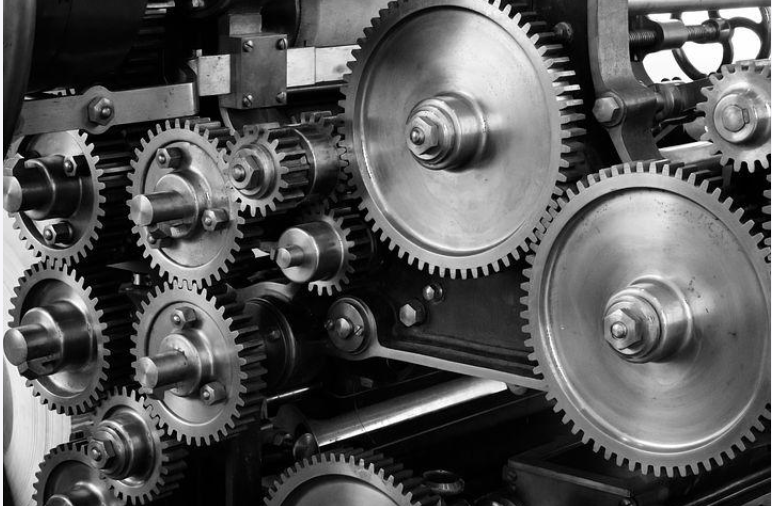 Short-term trust deeds are NOT the answer to successful trust deed investing. In real life, you want just the opposite, loans with a much longer term.
Short-term trust deeds are NOT the answer to successful trust deed investing. In real life, you want just the opposite, loans with a much longer term.
Why? Don't you want liquidity? Don't you want the flexibility of taking the proceeds of a loan payoff and investing it elsewhere, maybe in a stock market opportunity?
Hellooo? You should have plenty of money left in your portfolio to make that stock market investment; otherwise you are investing far-far too much money into a single trust deed. Remember, you want to take a small piece of lots different trust deeds.
On a practical level, you can never win by investing in bridge loans - trust deeds with a term of six months to a year. If your borrower is a good one , a smart operator, he is only going to keep your stinky 'ole bridge loan for a few months. Then he is going to pay you off early. How do we know this? Hard money loan rates are often 5% more expensive than bank loans, so the smart borrower wants to refinance with a bank as soon as possible.
Good bridge loans pay off in three to four months, making the investment hardly worth the bother.

This leaves the not-so-smart bridge loan borrowers. Remember, the smart ones quickly paid you off. The dummies and fools are often going to be late with their monthly payments, and you can bet they will also be late paying off their balloon payment.
In fact, you must never count on trust deeds paying off on their maturity date. In real life, it never happens. Never. Ever. Did I mention never?
Refinancing commercial properties takes months and months, and bankers are bunch of story tellers. "How long will it take to refinance my commercial building?" "Oh, just 45 to 60 days." Uh, huh. And your Mercedes is paid for? As a result, commercial mortgage borrowers always wait far too long before they apply for a loan to pay off their ballon payment.
At Blackburne & Sons, we don't freak out. We just raise their interest rate by 3% (it's built right into the note and mortgage). As long as our borrowers make their higher interest payments, our investors are usually quite happy to wait the extra four months to get paid off. Instead of earning 9%, our investors are earn 12%. They love it.
Bridge loans never-ever pay off at maturity.
Four-months late is the norm.
Here is a very practical reason for investing in longer-term trust deeds, say five years or longer. Good hard money first trust deeds are very hard to find these days. There is far more money chasing deals than there are investment opportunities.
If you are lucky enough to get into one of these deals, and your borrower is paying you as agreed, the very last thing you want is to get paid off early. You could easily wait months before getting into the next deal. The perfect deal is the one that pays you every month for years and years.
Lastly, there is the issue of promiscuity. Every time you invest in a new first trust deed, there is the possibility of borrower fraud or appraiser incompetence. Now this doesn't happen very often, but when it happens, you are probably going to take a loss.
It's just like being a bachelor hound dog (ladies please forgive my candor). The more romantic partners with whom you sleep, the greater your chances of... well, having your junk fall off. "Eeeuuu, George. That's gross."
But I think you get my point. Successful trust deed investing does NOT involve making scores of bridge loans to strange, new borrowers over a five-year period. If you keep that up long enough, you will likely meet the wrong borrower, and your financial junk is going to fall off.
The perfect trust deed investment
pays perfectly for five to ten years.

You may be asking yourself, "But what if I need my money back?" Folks, in today's hard money investing market, access to your money will probably be the least of your problems. Remember, hard money loans are often 5% more expensive than banks loans, so we are constantly getting paid off early.
You should be taking a small piece - $10,000 to $25,000 - in six to fifteen different deals. If you invest like this, you can reasonably expect one or two payoff's every 18 months. There's your liquidity.
"Okay, George, I don't really need this money back right anyway. I actually prefer if my money stays outstanding, earning interest. Why can't you just insist on a prepayment penalty?"
Folks, we would if we could, but the market for good loans is just too competitive to require a prepayment penalty. There is nothing to be done. But my point is that, if you invest in good loans, you won't have to worry too much about getting access to your money. Early payoff's are going to drive you crazy.
You can achieve liquidity by investing
a tiny amount in lots of different deals.

What Are Trust Deeds:
Trust deeds (or mortgages, depending on the state) are investments in a loan, secured by real estate, directly to the borrower. Rather than putting your money in the bank and having the bank make the real estate loan, private investors can actually make the loan directly.
The trust deed investment business is huge in California, and it has been around at least 80 years. Recent law changes now allow investors from every state to invest in trust deeds, as long as they are accredited investors. The good news is that you can earn 7% to 12% interest in first trust deeds. The bad news is that you, not the bank, take the loss if the loan goes bad.

Scary Disclosure Stuff:
Investing in first trust deeds involves substantial risk. A large and prolonged decline in real estate values is possible. Always maintain some liquidity. Foreclosed property always needs to be renovated. Before you invest with Blackburne & Sons, my own hard money shop, or any other reputable hard money outfit, you will be given a huge Offering Circular, which discloses many of the risks. Please be sure to read it, especially the Risk Factors section.








